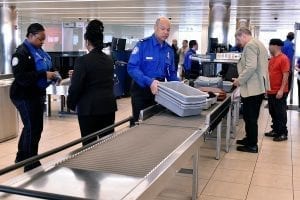However, it remains to be seen whether the three plaintiffs can challenge the deeply-entrenched doctrine of qualified immunity, which protects most civil servants from lawsuits.
The U.S. Supreme Court has determined that three Muslim men who were placed on the national no-fly list after refusing to spy on their fellow worshipers can sue FBI agents and officials for damages suffered under the Religious Freedom Restoration Act.
According to National Public Radio, the case—entitled Tanzin v. Tanvir—erupted after the plaintiffs began to claim that Federal Bureau of Investigation employees tried to harass them into becoming informants.
Attorney Ramzi Kassen, who is representing all three of the men, said the no-fly list was and remains problematic, as it combines “tremendous power with a near total lack of transparency.”
Since it is generally difficult for persons placed on the no-fly list to both ascertain why they were put on the list and appeal their placement, designated individuals typically have no means for recourse.
NPR notes that none of the plaintiffs were suspected of engaging in any sort of illegal activity. In fact, Obama-era officials have tried to remove their names from the no-fly list shortly before the case moved to court.
But the government’s concession did little to persuade the men to drop their case.
Naveed Shinwari, one of the three plaintiffs, said he is extremely happy that the Supreme Court will allow his lawsuit to move forward.
“I feel extremely happy and content. All the praise belongs to Allah. This is a great victory for every voiceless Muslim and non-Muslim against hate and oppression and […] I hope that this is a warning to the FBI and other agencies, that they will be held responsible for […] traumatizing people and ruining their lives,” Shinwari said.
Shinwari, says NPR, came to the United States from Afghanistan when he was 14 years old. He later took a job as a manufacturing contractor—a position which demanded that he take frequent domestic flights.

After being placed on the no-fly list, Shinwari was neither able to do his job nor visit his wife, who was—at the time—still living in Afghanistan. She has since moved to the U.S.
Tanzin v. Tanvir is notable not only for the plaintiffs’ suffering, but its challenge to a concept known as qualified immunity. Under qualified immunity doctrine, government employees typically cannot be sued for doing work in line with their expected duties.
Although the Supreme Court has allowed the case to progress, the justices did not specify whether qualified immunity may exempt the defendant FBI agents from civil liability.
Nevertheless, Vox’s analysis of the justices’ unanimous decision suggests that the Supreme Court is open—at least in theory—to permitting civil rights plaintiffs to sue state and federal officials who violate the Constitution and place an undue burden upon an individual’s religious faith.
Interestingly, Vox suggests that the ruling—passed by a predominately conservative bench—could easily be manipulated by religious fundamentalists of all faiths and denominations to push back against extant government restrictions.
Sources
Muslim men on no-fly list have right to sue FBI, says US Supreme Court
Supreme Court Says Muslim Men Can Sue FBI Agents In No-Fly List Case


Join the conversation!